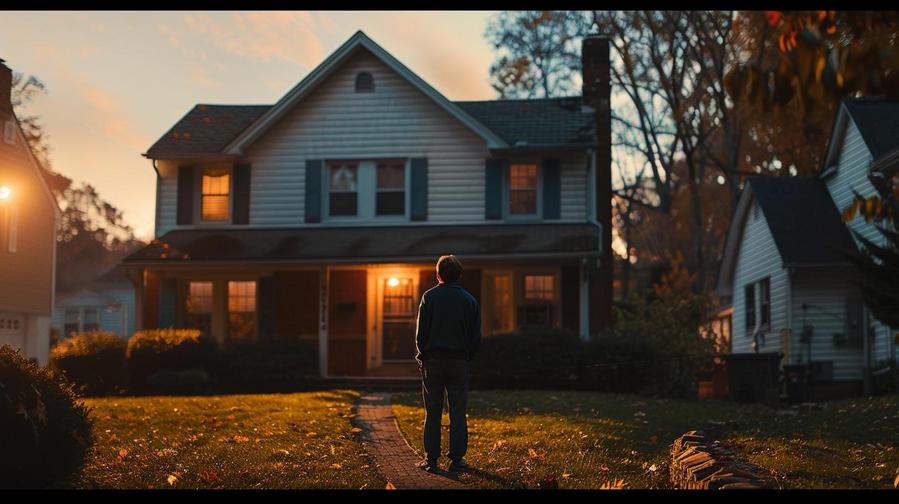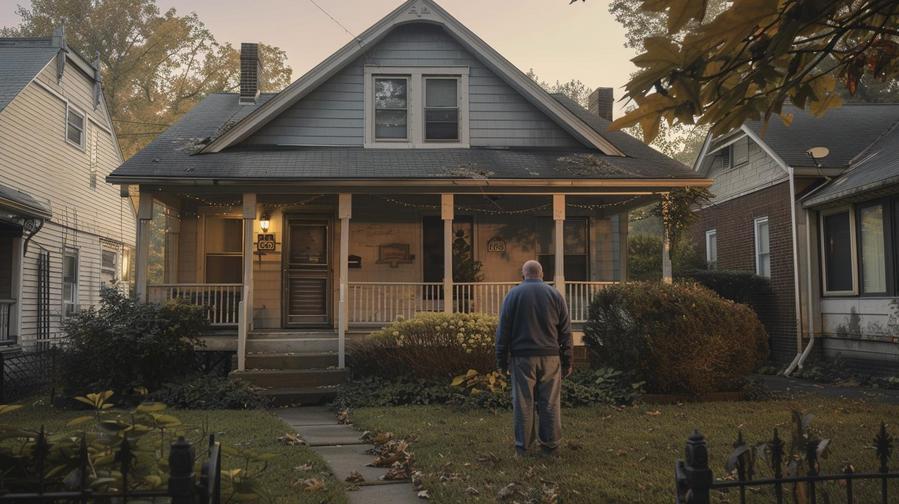If you’re wondering, “Can you sell your house after filing Chapter 7 bankruptcy?” the short answer is yes—but it’s not exactly straightforward. Whether you’re in Sell my house fast in Richmond or somewhere else entirely, I’ll walk you through what you actually need to know about the legal hurdles, protecting whatever equity you’ve built up, and picking the right moment to make your move.

- Homestead exemptions may let you keep some equity, but rules vary by state.
- Trustees manage sales in Chapter 7; timing matters for protecting proceeds.
- Consult a bankruptcy attorney before selling to avoid costly mistakes.
- Expect a waiting period before qualifying for new mortgages post-bankruptcy.
- Chapter 13 may let you keep your home through a repayment plan.
What Should You Know About Chapter 7 Bankruptcy Before Selling Your Home?
Here’s the thing about Chapter 7: it can eliminate a lot of your debts, which sounds great. But there’s a catch. You might have to sell off assets—yes, potentially including your house. A court-appointed trustee runs the show here. Now, if you’re lucky enough to live in a state with solid homestead exemptions, you could potentially shield a decent chunk of your home equity. If you’re facing foreclosure, learn how selling before foreclosure works in Virginia to get a handle on what protections you might have locally.
Understanding Chapter 7 Bankruptcy
So basically, Chapter 7 involves liquidating non-exempt assets to pay back what you owe. If the equity in your home goes beyond what your state allows you to protect? It could be on the chopping block. Some states are incredibly generous—think Florida or Texas, where exemptions can reach into the hundreds of thousands. Others? Not so much. Virginia, for instance, sits somewhere in the middle at around $5,000 to $10,000 (plus an additional $500 per dependent).
The Role of Trustees
The trustee isn’t just some random person—they’re essentially the referee making sure everything happens by the book. They handle the sale, and here’s how the money flows: first, your exemptions get covered, then creditors get their cut. Everything needs court approval, which can slow things down considerably.
Homestead Exemption Basics
These exemptions aren’t just numbers on paper. In Virginia, you’re looking at a relatively modest amount compared to, say, Texas where you could protect an unlimited amount on your primary residence (within acreage limits). But it’s not just about the sale itself—you’ll want to check whether the proceeds stay protected afterward and for how long. Some states give you six months to two years to reinvest that money.
How Can You Sell Your House After Filing for Bankruptcy?
Selling after you’ve filed Chapter 7? It’s doable, but honestly, it can get messy. When you sell matters—a lot. This holds true whether you’re going the traditional route or working with cash home buyers in Norfolk.
Timing the Sale
If you sell before your bankruptcy discharge, those proceeds might head straight to your creditors—assuming your equity isn’t fully exempt. Even after discharge, if your case is still technically open, the trustee probably needs to sign off on everything.
Worked Pricing Example
Let me break down the numbers: Say your house could sell for $200,000 as-is. Subtract $20,000 in needed repairs, and you’re at $180,000. Then factor in closing costs (around $5,000) and an investor’s profit margin (typically $15,000), and you’re looking at an offer around $160,000. Is it less than market value? Sure. But sometimes that speed and certainty are worth the trade-off, especially when you’re dealing with bankruptcy complications.
Exemption Planning
This is where things get strategic. You’ll want to maximize those state exemptions to keep as much of the sale proceeds as possible. Some states are pretty generous about letting you reinvest in another home—but there’s usually a clock ticking.
What Are the Legal Considerations for Selling Your Home During Chapter 7?

State Exemption Laws
The difference between states can be staggering. While someone in Florida might keep their entire home regardless of value, someone in Delaware could be limited to just $125,000 in equity. These differences aren’t trivial—they could determine whether selling makes any sense at all.
Risks Without Protection
Here’s what keeps people up at night: selling without enough exemption coverage means watching most of your proceeds disappear to creditors. You could end up with barely enough for a security deposit on a rental, let alone a down payment on something new.
How Does Filing Chapter 7 Bankruptcy Affect Your Ability to Buy a New Home?

FHA loans? You’re looking at a two-year wait after discharge. Conventional loans tend to be stricter—sometimes up to four years. But honestly, this waiting period isn’t necessarily a bad thing. It gives you time to rebuild your credit score (which probably took a hit) and save up a decent down payment.
Can You Sell Your House and Keep the Equity After Chapter 7 Bankruptcy?
Equity Protection Rules
If your equity falls within your state’s homestead exemption, you might be able to hang onto it. Go over that limit, though, and the trustee could force a sale. It’s a fine line to walk.
Maximizing Retention
- First, figure out exactly what your state allows—down to the dollar.
- Chapter 13 might be worth considering if you’ve got significant equity to protect.
- And please, talk to a bankruptcy lawyer who knows your local rules inside and out.
Chapter 13 Vs. Chapter 7: Property Selling Differences
The basic difference? Chapter 7 might force you to sell. Chapter 13 lets you keep your stuff while you work through a payment plan over three to five years. If you’ve got steady income and want to keep your house, Chapter 13 could be the way to go. But if you’re already planning to downsize or move anyway, Chapter 7 might make more sense.
Practical Steps to Selling Your Home After Chapter 7 Bankruptcy
Whether you’re going with a traditional listing or considering a sell a house quickly in Virginia Beach service, here’s what you need to do:
Seller Checklist
- Double-check your state’s exact homestead exemption amount (it changes).
- Get the green light from the court or trustee—this isn’t optional.
- Fix what you can afford to fix; even small improvements help.
- Pull together every piece of paperwork—tax records, mortgage statements, the works.
- Decide if you need speed (cash buyer) or maximum price (traditional sale).
- Have your next living situation lined up before you close.
Consultation and Professional Guidance
I can’t stress this enough: talk to a bankruptcy attorney before you do anything with your house. The rules are complex, and what seems like a smart move could backfire spectacularly. A few hundred dollars in legal fees now could save you thousands—or tens of thousands—later.
FAQs
Can I sell my house myself during Chapter 7?
Technically yes, but you’ll need court approval first. And the trustee will be watching every step to make sure it’s all above board. Don’t try to go rogue here.
What happens if I sell before filing?
This could get tricky. Those proceeds might still be fair game for creditors unless they’re properly protected. Definitely get legal advice before making this move—the timing matters more than you’d think.
Are cash buyers a good option?
They can be, especially when you need to move fast and don’t want to deal with financing falling through. The trade-off? You’ll probably get less than market value—sometimes 70-80% of what a traditional sale might bring. But when you’re juggling bankruptcy deadlines, that certainty can be worth it.
Explore home selling options in Chesapeake for more insights.





